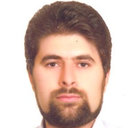Functional improvement and immune-inflammatory cytokines profile of ischaemic stroke patients after treatment with boswellic acids: a randomized, double-blind, placebo-controlled, pilot trial.
Raktažodžiai
Santrauka
Ischaemic stroke represents one of the main causes of disability. According to the broad investigations, it is widely assumed that the contribution of inflammatory mediators is strongly involved in its pathogenesis. Hence, it seems that stroke treatment needs more efficient and inflammatory-targeted compounds to modulate inflammatory-related pathways. Such strategies paved the way to achieve better clinical outcomes along with conventional therapies. Boswellic acids (BAs), the main bioactive compounds of Boswellia sp. resin; are triterpenoids with well-documented anti-inflammatory properties. Compared with NSAIDs, BAs cross blood-brain barrier yet they do not cause serious gastrointestinal adverse effects. Considering BAs anti-inflammatory features, we conducted a randomized double-blind placebo-controlled pilot trial of these compounds as a supplementary therapy. This trial randomized 80 ischaemic stroke patients (40-80-years old) with a 4-20 score according to the National Institutes of Health Stroke Scale (NIHSS), within 72 h of neurological sign onset, in 1-month follow-up period. We assessed NIHSS as primary and plasma levels of TNF-α, IL-1α, IL-1β, IL-2, IL-4, IL-6, IL-8, IL-10, IL-12p70, IFN-γ, IP-10, MCP-1, 8-isoprostane, and PGE2 as secondary outcomes. According to NIHSS evaluation, patients who were allocated to BA group had a significant recovery in neurological function during the 1-month follow-up, compared with the placebo. The levels of plasma inflammatory markers were significantly decreased in BA group after 7 days of intervention in TNF-α, IL-1β, IL-6, IL-8, and PGE2. As a preliminary controlled trial in ischaemic stroke, BAs could improve clinical outcome in the early phases of stroke along with promising changes in plasma inflammatory factors.Clinical trial registration https://www.irct.ir Unique identifier: IRCT20170315033086N5. IRCT is a primary registry in the WHO registry network ( https://www.who.int/ictrp/network/primary/en/ ).


